Are you looking to elevate your business through expert guidance? A well-crafted consultancy service proposal can be the key to unlocking potential growth and innovation in your organization. In this article, we'll explore essential components of an effective proposal that speaks directly to your client's needs and pain points. Join us as we dive deeper into the art of proposal writing and discover how you can create compelling consultancy offers that stand out!
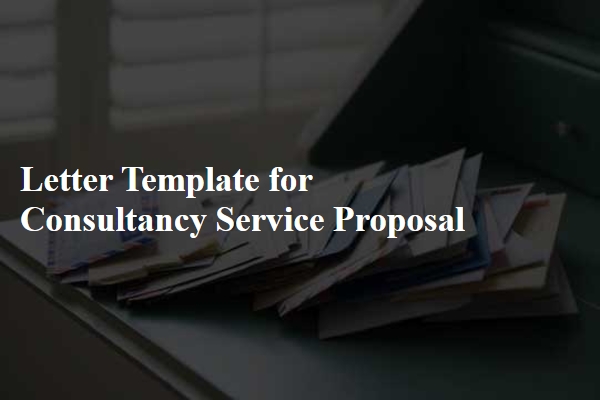
Introduction and Executive Summary
The consultancy service proposal introduces expert advisory services aimed at enhancing organizational efficiency and strategic growth for businesses. This document outlines a comprehensive approach tailored to specific client needs, including market analysis, operational improvement, and risk management strategies. Executive summary highlights key objectives, such as increasing revenue by 15% within 12 months, identifying cost-saving opportunities up to 25%, and implementing innovative solutions that leverage technology. The proposal emphasizes the consultancy's extensive experience in sectors like healthcare, finance, and sustainable development, showcasing successful projects that have delivered measurable outcomes. Targeted methodologies will foster collaborative partnerships, ensuring that clients gain insight and practical recommendations for sustained success.
Detailed Scope of Services
The consultancy service proposal outlines a comprehensive scope of services tailored to meet the specific needs of clients in various industries, such as technology, healthcare, and finance. Key components include conducting thorough market research, analyzing data for strategic decision-making, and providing expert recommendations based on industry best practices. Engagement in workshops and training sessions ensures that client teams are equipped with essential skills for implementation. Deliverables often include detailed reports, presentations, and actionable project plans that break down timelines and milestones. The consultant's experience in navigating complex regulatory environments can also be a critical asset for clients, especially in heavily regulated sectors like pharmaceuticals and banking. Furthermore, ongoing support and performance evaluations are integrated to measure success and facilitate adjustments to strategies.
Proposed Methodology and Approach
The proposed methodology for the consultancy service emphasizes a structured framework designed to achieve optimal outcomes. Initial phases involve comprehensive stakeholder interviews, focusing on understanding unique organizational challenges. Tools such as SWOT analysis (Strengths, Weaknesses, Opportunities, Threats) will be utilized to assess internal capabilities. Following this, a detailed needs assessment will be conducted, aimed at aligning services with specific objectives identified. Data collection will encompass both quantitative metrics (like performance KPIs) and qualitative insights from employee surveys. The integration of project management methodologies, such as Agile or Waterfall, allows for iterative progress evaluation and adaptability. Ultimately, the aim is to deliver tailored solutions that facilitate sustainable growth and operational efficiency in organizations.
Project Timeline and Milestones
Creating a detailed project timeline with clearly defined milestones is essential for consultancy services. A project timeline outlines the duration of each phase, such as initial assessment, strategy development, implementation, and evaluation. Key milestones may include dates for project kickoff meetings, completion of research phases, delivery of draft reports, and final presentations. A specific location, such as an office in New York City, could serve as the primary meeting venue for stakeholders. Utilizing project management tools like Gantt charts or Kanban boards enhances tracking progress and ensuring accountability. Regular check-ins, ideally bi-weekly, keep all parties informed and engaged throughout the consultancy process.
Pricing and Payment Terms
Pricing structures for consultancy services typically include hourly rates or project-based fees, depending on the scope of work. For instance, hourly rates may range from $100 to $300 based on expertise, while project fees could be structured as flat rates of $5,000 or more for extensive engagements. Payment terms can delineate when payments are due, commonly specifying a deposit (often 30% to 50% of the total fee) upfront, followed by milestone payments upon reaching specific project phases. It is essential to clarify acceptable payment methods, including bank transfers or credit cards, and outline any late payment penalties, which might incur interest rates of 1.5% per month after a grace period of 30 days. Invoicing schedules can also be established, usually occurring bi-weekly or monthly, to ensure transparency and maintain cash flow for both parties involved in the consultancy agreement.
Letter Template For Consultancy Service Proposal Samples
Letter template of consultancy service proposal for HR management solutions
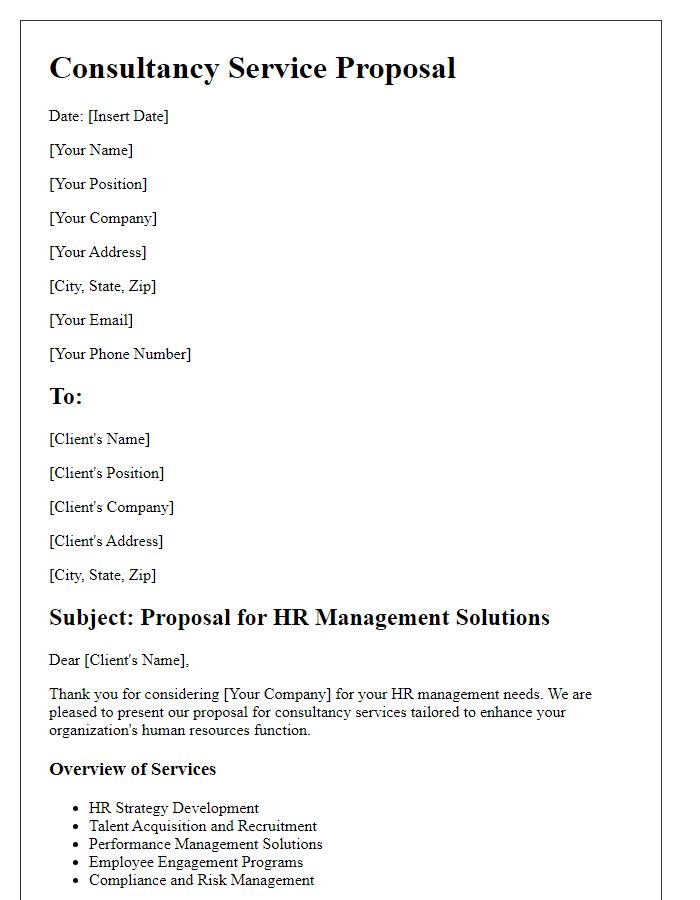
Letter template of consultancy service proposal for IT system implementation
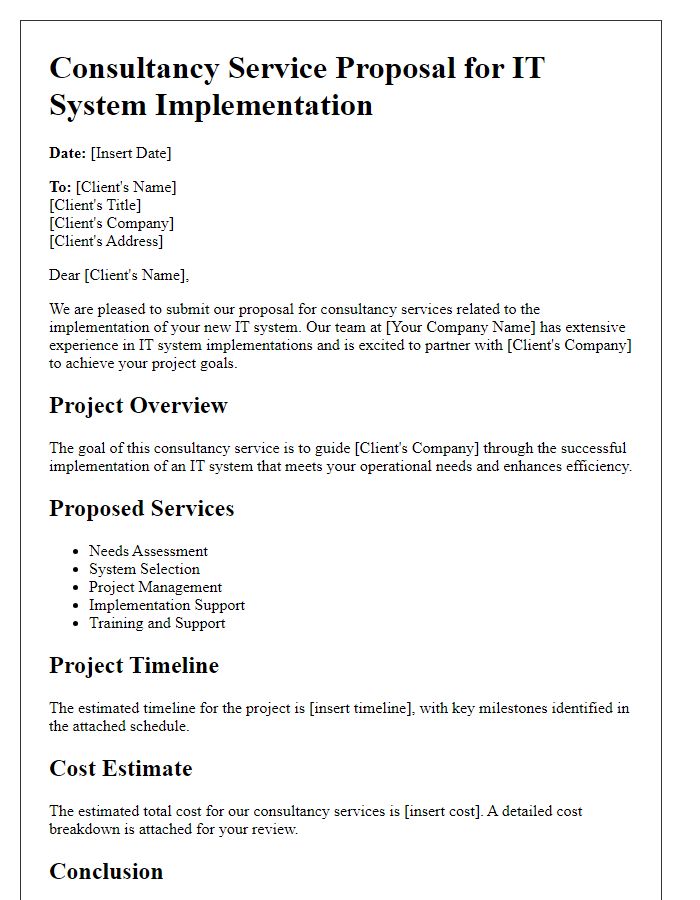
Letter template of consultancy service proposal for project management assistance
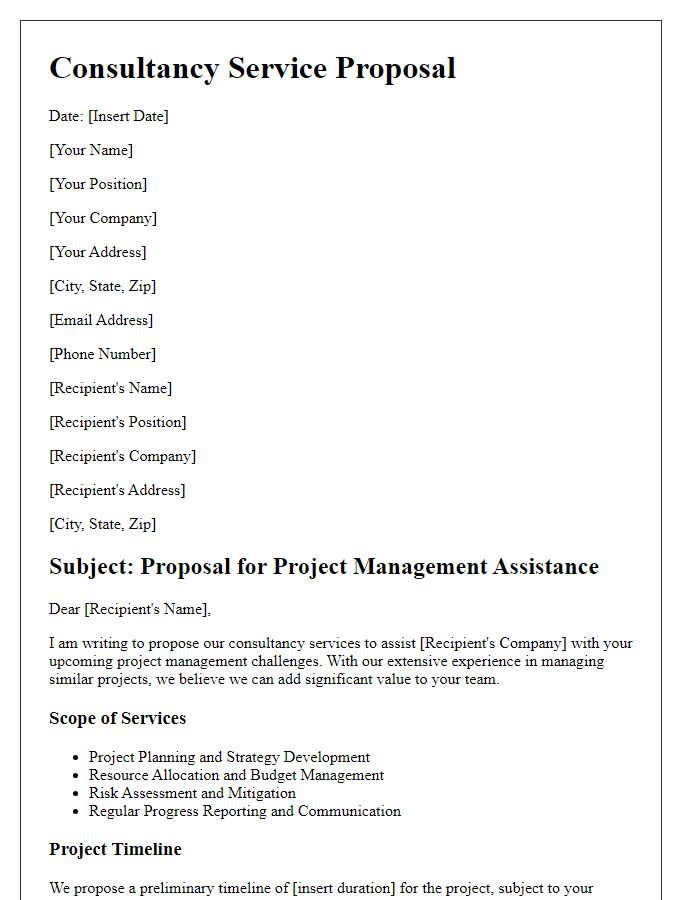
Letter template of consultancy service proposal for risk management services
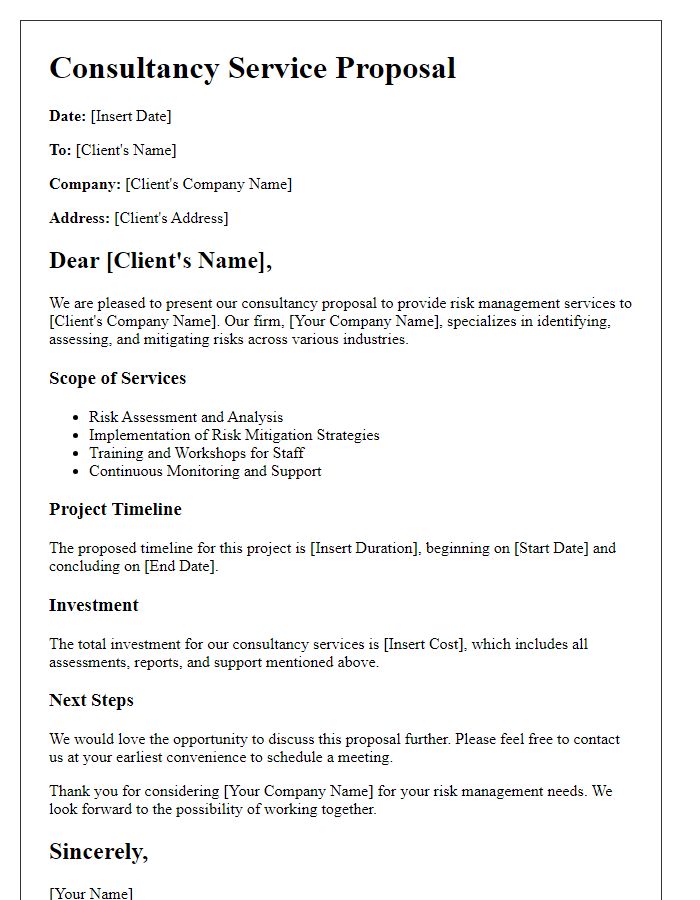
Letter template of consultancy service proposal for operational efficiency improvement
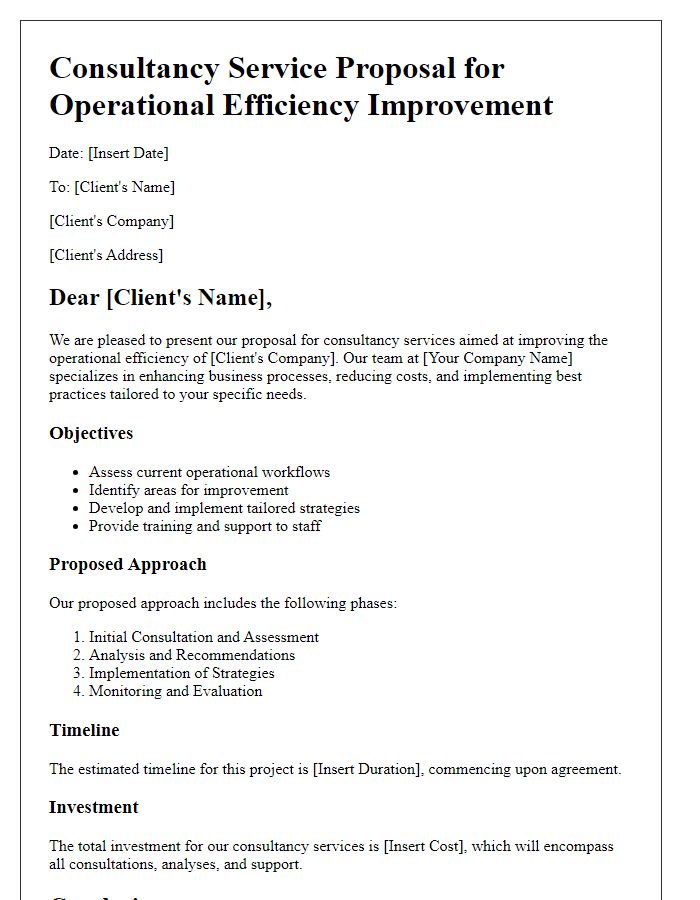
Letter template of consultancy service proposal for market research insights
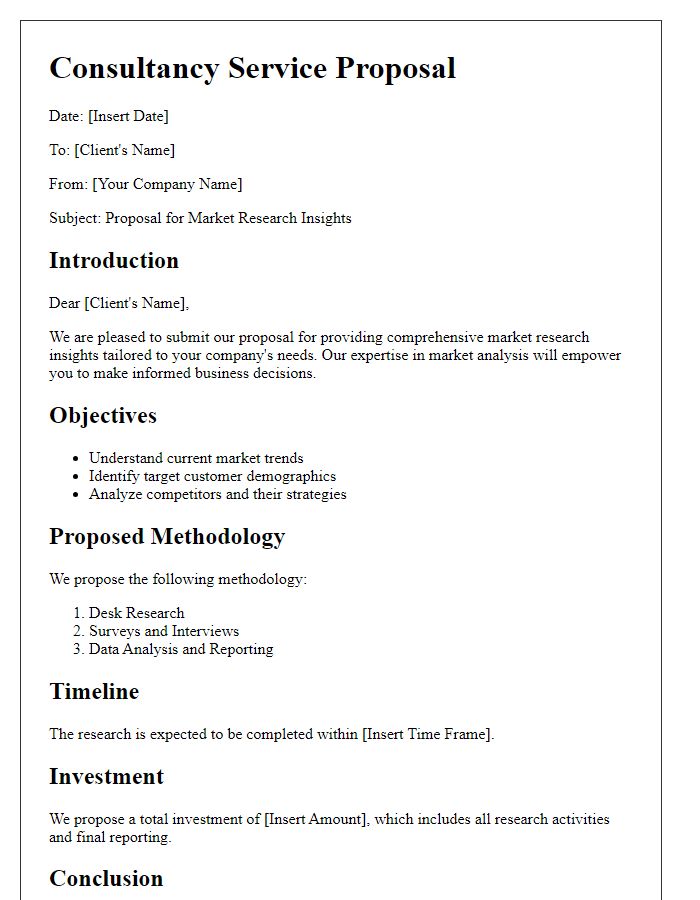

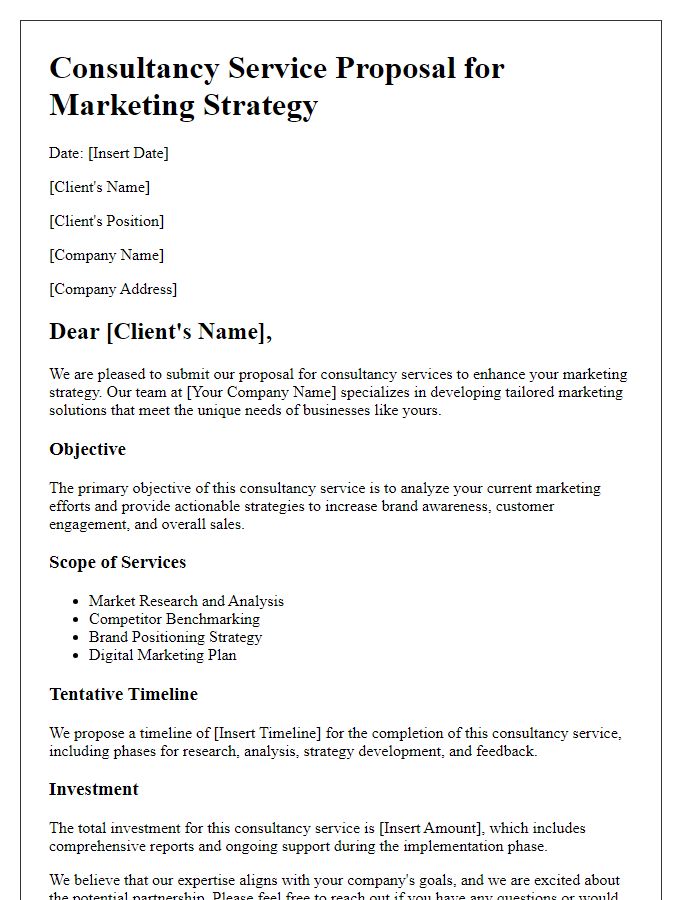
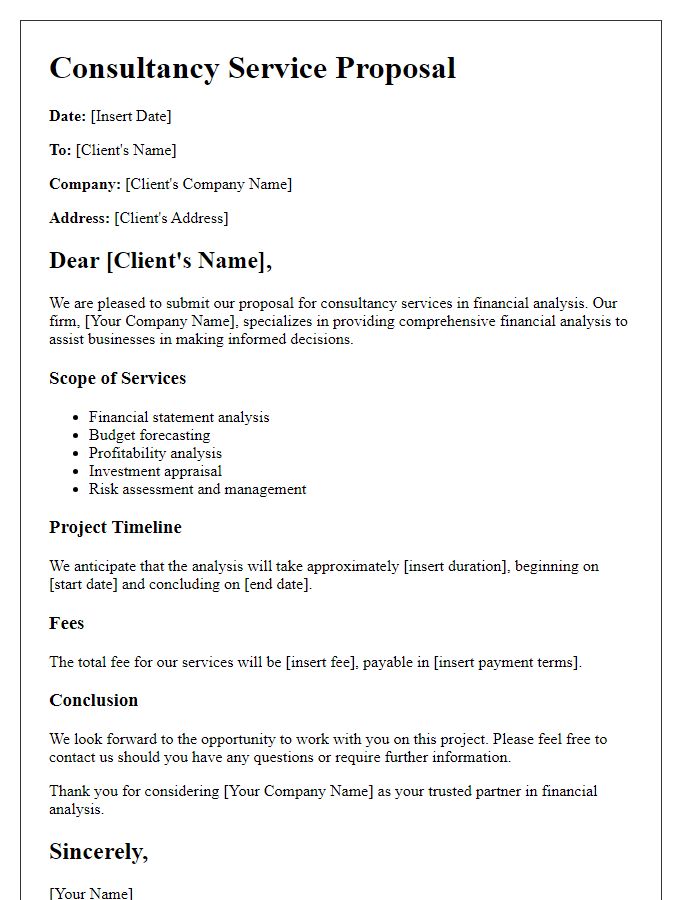
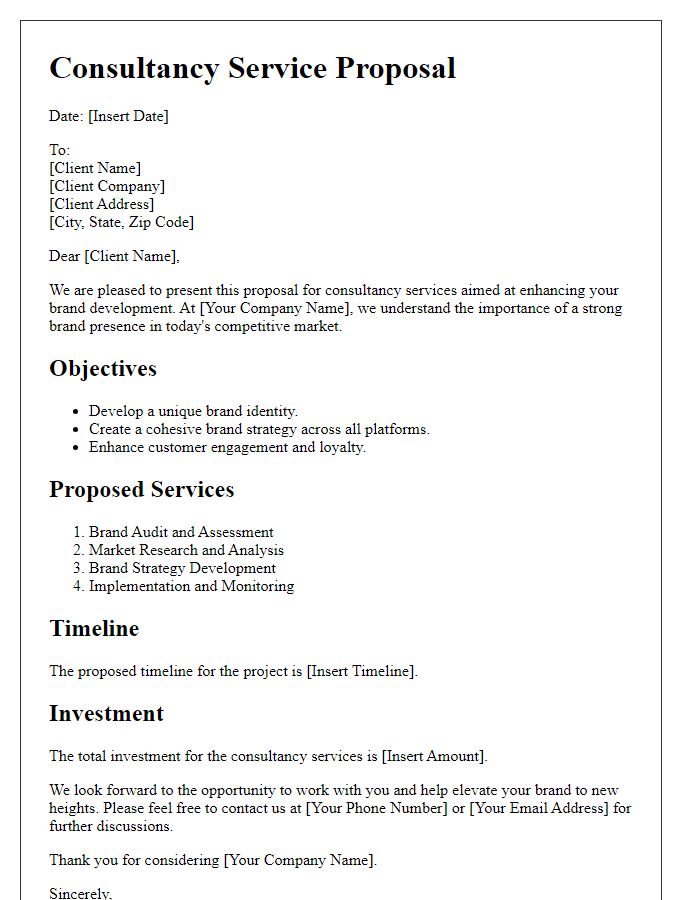
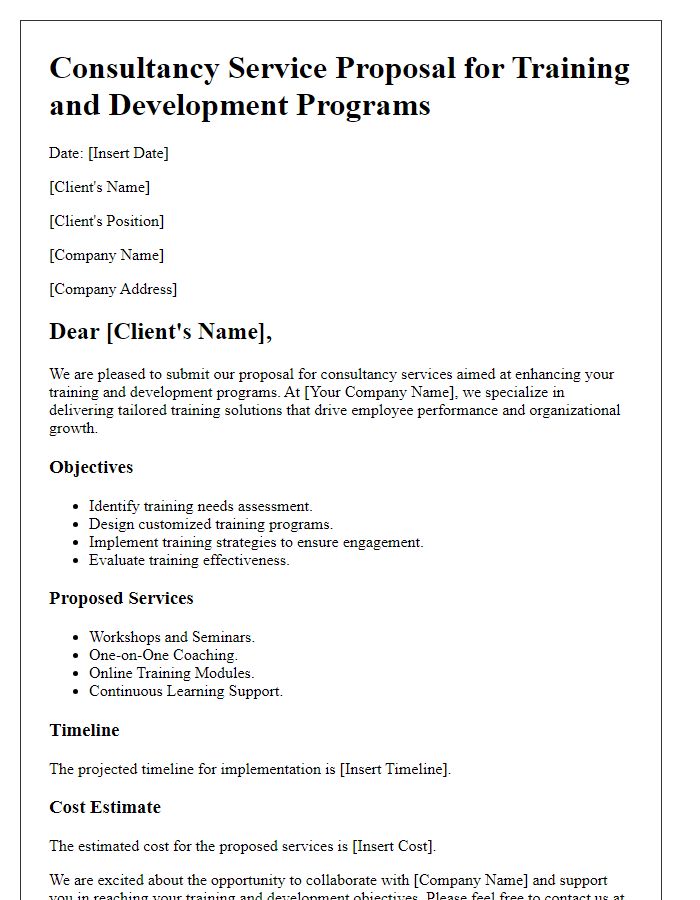

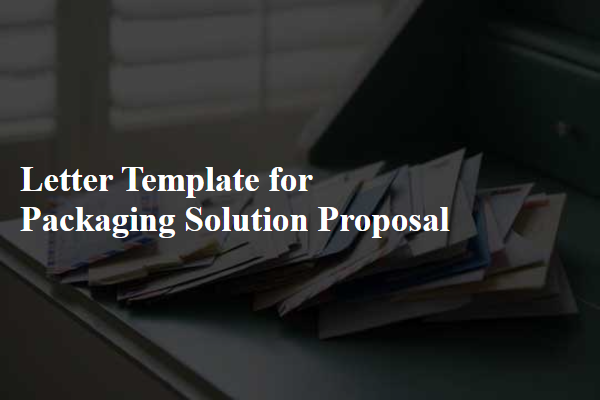
Comments